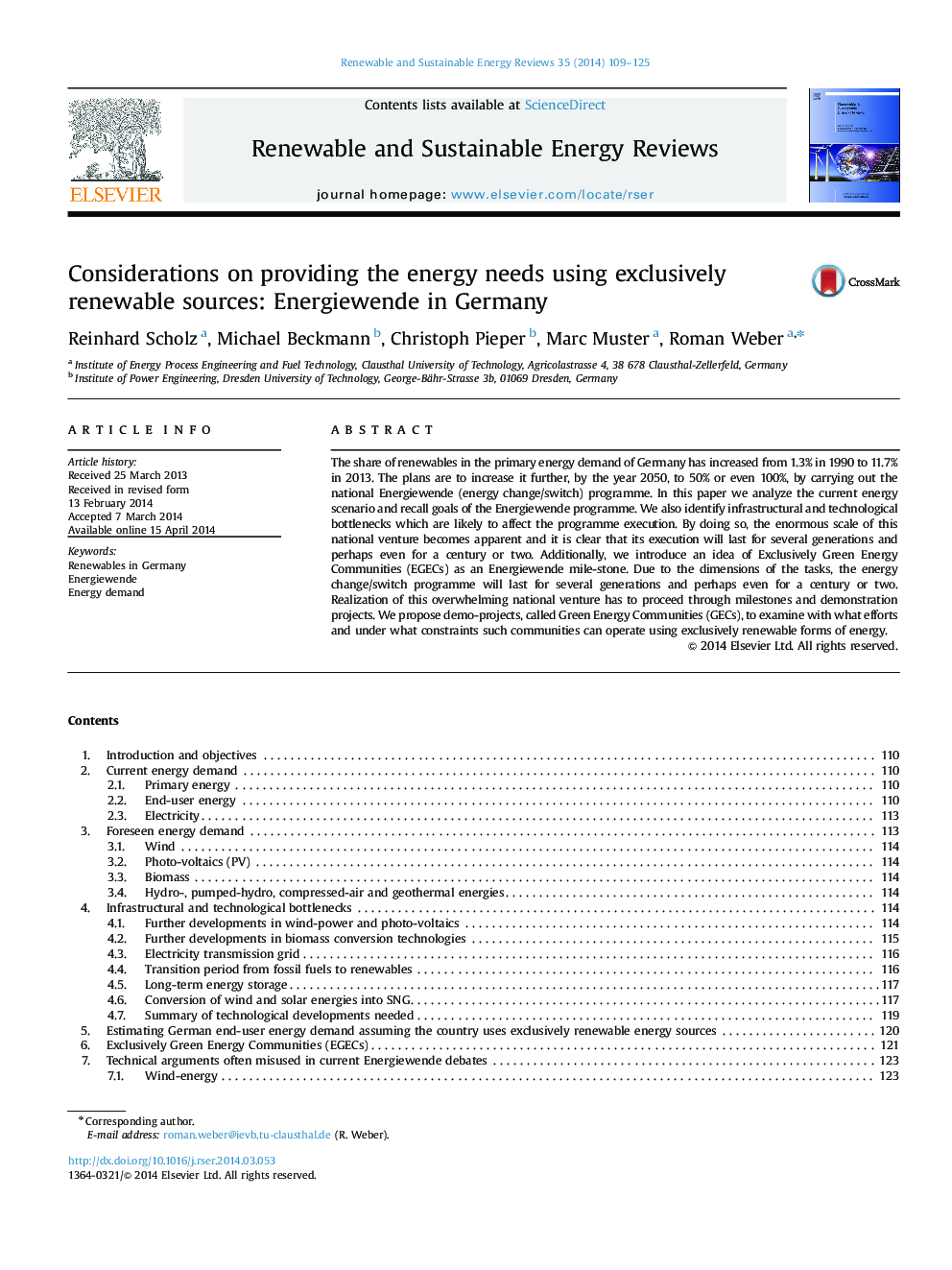| Article ID | Journal | Published Year | Pages | File Type |
|---|---|---|---|---|
| 1750370 | Renewable and Sustainable Energy Reviews | 2014 | 17 Pages |
The share of renewables in the primary energy demand of Germany has increased from 1.3% in 1990 to 11.7% in 2013. The plans are to increase it further, by the year 2050, to 50% or even 100%, by carrying out the national Energiewende (energy change/switch) programme. In this paper we analyze the current energy scenario and recall goals of the Energiewende programme. We also identify infrastructural and technological bottlenecks which are likely to affect the programme execution. By doing so, the enormous scale of this national venture becomes apparent and it is clear that its execution will last for several generations and perhaps even for a century or two. Additionally, we introduce an idea of Exclusively Green Energy Communities (EGECs) as an Energiewende mile-stone. Due to the dimensions of the tasks, the energy change/switch programme will last for several generations and perhaps even for a century or two. Realization of this overwhelming national venture has to proceed through milestones and demonstration projects. We propose demo-projects, called Green Energy Communities (GECs), to examine with what efforts and under what constraints such communities can operate using exclusively renewable forms of energy.
